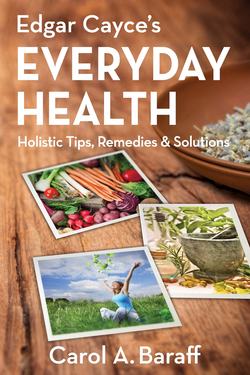Читать книгу Edgar Cayce's Everyday Health - Carol Ann Baraff - Страница 9
На сайте Литреса книга снята с продажи.
Almonds, Beauty, and Long Life
ОглавлениеThere can be no denying that the almond was Edgar Cayce’s favorite nut (unless in a joking mood), although the reasons for this preference remain incompletely understood. Cayce’s remarks on this tropical seed’s nutritional content, cosmetic properties, and uses in preventive medicine have sent countless numbers running to their health food stores and have probably been a major boost to the almond industry over the years. Now, confirmation of these benefits is beginning to come to light.
In the nutritional arena, the readings regard almonds as valuable blood builders, stating: “. . . The almond carries more phosphorus and iron in a combination easily assimilated than any other nut.” (1131-2) This nut is also recommended for its calcium content, and almond (or almond and hazelnut) milk is sometimes preferred to cow’s milk.
According to USDA statistics, almonds are indeed high in phosphorus and supply 6% of the Daily Value (DV) for iron and 6% of the DV for calcium. Incidentally, they’re even higher in magnesium (21%) and vitamin E (35%). Almond milk, which is widely available today, should be an excellent source of all these nutrients.
Along with hazelnuts (also a favorite) and other nuts, almonds are sometimes even regarded by Cayce as a meat substitute based on their protein and healthier fat content. The following comments are typical:
. . . Nuts are good, but do not combine same with meats. Let them take the place of same. Filberts {hazelnuts} and almonds are preferable in the nuts.
1151-2
. . . Those foods . . . have a tendency towards an alkaline reaction, but let the proteins be taken rather in the form of nuts and fruits—for the fats and oils, you see; these are much more preferable.
741-1
Almonds are so high in vitamin E and low in saturated fatty acids that some researchers have wondered whether they might play a role in reducing cholesterol. Sure enough, it has been found in studies that an almond-based diet significantly lowered total cholesterol and harmful LDL cholesterol and preserved helpful HDL cholesterol.6 Other studies have shown that eating nuts, in general, will protect us from heart disease.7 In the most dramatic of these findings, in five large studies the risk of heart disease was reduced by a whopping 30 to 45% in those who ate nuts several times a week.8
In addition to health benefits, many readings regard the almond as a beautifier both inside and out. Cayce’s skin emollient suggestions support the use of almond oil by the cosmetic industry for its legendary rejuvenating effect. Some refer to an almond cream or “. . . a lotion with an almond base.” (1293-2) However, the most intriguing comments on this subject are of a dietary nature: “And know, if ye would take each day, through thy experience, two almonds, ye will never have skin blemishes . . .” (1206-13)
Other readings go much further, commenting that a few daily almonds will act as a cancer preventive. The familiar statement that “A person who eats two or three almonds each day need never fear cancer” (3180-3) is among the more general ones in the readings. A more colorful way of putting this follows:
. . . and if an almond is taken each day, and kept up, you’ll never have accumulation of tumors or such conditions through the body. An almond a day is much more in accord with keeping the doctor away, especially certain types of doctors, than apples. For the apple was the fall, not almond—the almond blossomed when everything else died. Remember this is life!
3180-3
The almond’s possible role in cancer prevention has always been a puzzling one, but this is now being explored in animals. In a California study published in 2001, researchers investigated the effect of eating almonds, almond oil, and almond meal on colon cancer in rats. All were found to have preventive effects though the whole almonds were the most effective of the three and surpassed the wheat bran and cellulose used in control groups. The authors of the study concluded that “almond consumption may reduce colon cancer risk and does so via at least one almond-associated lipid [fat] component.”9
How much more encouragement do we need to eat our almonds?
